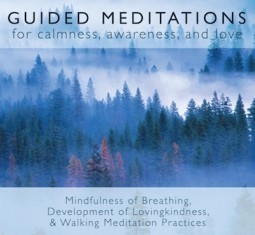Violent Buddhists and the “No True Scotsman” fallacy
 I recently had a conversation on Google+ (it’s a social network that’s — in my opinion — a much better alternative to Facebook) about Buddhist violence in Burma. Following the alleged rape of a Buddhist woman in Burma by members of that country’s Muslim minority, there was an outbreak of violence in which 2,600 homes were torched and at least 29 people died.
I recently had a conversation on Google+ (it’s a social network that’s — in my opinion — a much better alternative to Facebook) about Buddhist violence in Burma. Following the alleged rape of a Buddhist woman in Burma by members of that country’s Muslim minority, there was an outbreak of violence in which 2,600 homes were torched and at least 29 people died.
I condemned this violence unequivocally. There is no justification in the Buddhist scriptures for violence. There is no Buddhist doctrine of “just war” or even of “righteous anger.” The Buddha condemned all forms of violence, and famously said that even if bandits were sawing you limb from limb, you should have compassion for your torturers. In fact he said that anyone who had any anger in such a situation would not be one of his followers.
Now that seems kind of crazy, because every single Buddhist experiences anger. I know I do. Does that mean that the Buddha has no followers? I don’t think so. I think what the Buddha meant was that in the moment of being angry you are not following his teachings. In the moment of being angry we are not pursuing the path of mindfulness and compassion.
But back to that discussion on Google+.
The original thread I was commenting on was started by an atheist, and she had a number of atheist followers who chimed in, citing the violence as evidence that Buddhism is a bad thing (“full of shit”) was one phrase used. I had a feeling that there was a generalized disdain of religion which was being uncritically extended to Buddhism.

Check out Bodhipaksa's meditation CDs and MP3s
But in what way does it make sense to criticize Buddhism itself because of the behavior of people who call themselves Buddhists? If Buddhism (i.e. the Buddha’s teachings) said “violence is wrong unless…” then, sure, I’d accept the premise that Buddhism is full of shit. But it doesn’t. The Buddha was completely uncompromising on the question of violence. When people are violent they’re not following the Buddha’s teachings.I articulated the point above, and was accused of employing the “No True Scotsman” fallacy. In case you’re unaware of this fallacy, it runs like this:
McTavish says, “No Scotsman would refuse to help an old lady crossing the road.”
Smyth says, “I witnessed, just yesterday, a Scotsman who refused an old lady’s entreaties to help her cross a busy thoroughfare.”
MacTavish replies, “Ah, but he was no true Scotsman.”
What our dear friend McTavish is doing here is trying to justify an unsupportable generalization when challenged with examples contradicting it. [Full disclosure: I am a True Scotsman.]
So, what does that mean in terms of Buddhists who are violent? Well, given that I would never make a generalization of the type “No Buddhists are violent” I don’t need to backtrack as McTavish did. My statement (and the Buddha’s) is more akin to a definition: “The Buddha’s teaching is to practice nonviolence. When someone is violent, they are not practicing the Buddha’s teaching.
So if I said “Scientists do not falsify results” that could be challenged by someone pointing to examples of scientists falsifying results. I could then fall back on the “No True Scotsman” fallacy by arguing that those cheating scientists are “not true scientists.” I’m attempting (using a fallacious argument) to justify a false generalization.
Now if I say that scientists who falsify results are not doing science, there’s no fallacy involved. I haven’t made a false generalization that I am trying to defend. I’ve made a fairly precise statement about what science does and does not consist of.
Similarly, people who are acting violently are not “doing Buddhism. The Buddha’s teachings provide no “excuses” for violence — not even the “he did it first” or the “I was just defending myself” types of excuses.? There’s no use of the “No True Scotman” fallacy here — just a clear definition.
Now if only we could remember, as Buddhists, that when we express hatred we cease, at least for a while, to be Buddhists.



